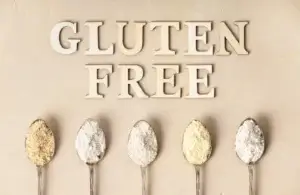
The Hidden Power of Fasting Intermittent: Unlock Natural Healing
Fasting intermittently is a popular way to improve health and wellness. It involves alternating between eating and fasting periods, allowing flexibility for those who want

Welcome to “Liver Detox Explained: A Holistic Approach to Optimal Liver Health.” In this comprehensive guide, we embark on a journey to understand and implement effective strategies for revitalizing one of the body’s most vital organs — the liver.
The liver is essential for sustaining general health because it detoxifies blood, metabolizes nutrients, and controls many biological processes. However, our livers frequently suffer the most from these issues in today’s world of processed meals, environmental pollutants, and hurried lifestyles.
The purpose of this blog is to provide an understanding of the significance of a holistic approach for maintaining and improving liver function while demystifying the idea of liver detoxification or liver cleanses. An unhealthy liver can significantly impact overall health, underscoring the importance of detoxification and healthy practices. In addition, we will discuss natural ways to support liver health and offer helpful advice for implementing these liver-friendly routines into your everyday life.
Discover the keys to a robust and active liver as we go on this fascinating adventure. “Liver Detox Explained” is the go-to source for comprehensive liver health, regardless of your goals—improving energy levels, aiding in weight reduction and controlling, or just improving your general well-being. Together, let’s go out on this life-changing journey that will enable your body to flourish internally.

The liver stands as a silent powerhouse within our bodies, tirelessly performing a myriad of vital functions that are crucial for our overall well-being. Understanding and addressing risk factors such as poor diet, alcohol use, environmental toxins, hepatitis C, and obesity is essential to maintaining liver function and preventing liver disease. It is frequently overlooked, yet we cannot emphasize its importance enough because it is essential to preserving homeostasis and guaranteeing the efficient operation of numerous body functions.
The liver is our body’s primary detoxification hub. It filters and neutralizes toxins, pollutants, and metabolic byproducts, ensuring that harmful substances are safely eliminated from our system.
It serves as a metabolic powerhouse, processing nutrients from the food we eat. The liver plays a key role in breaking down carbohydrates, fats, and proteins, converting them into energy, or storing them for later use.
The liver acts as a storage reservoir for essential nutrients like glycogen, vitamins, and minerals. It releases these nutrients into the bloodstream when needed, helping to maintain stable blood sugar levels and providing sustenance during periods of fasting.
Blood Regulation
The liver plays a vital role in regulating blood composition. It produces proteins essential for blood clotting and synthesizes albumin, a protein crucial for maintaining blood volume and pressure.
Cholesterol Metabolism
It actively participates in cholesterol metabolism, producing and regulating cholesterol levels in the body. This is pivotal for cardiovascular health and overall lipid balance.
Immune Support
The liver contributes to our immune system by removing bacteria from the bloodstream and producing immune factors. It acts as a crucial defense against infections and diseases.
Hormone Regulation
The liver metabolizes hormones, helping to maintain hormonal balance within the body. This is why liver enzymes are vital for reproductive health, growth, and various physiological processes.

Hydration
Drink plenty of water to help flush toxins out of the body through urine. Staying well-hydrated supports overall health and aids in various bodily functions.
Healthy Diet
Concentrate on eating a diet full of nutritious grains, fruits, vegetables, and well-balanced foods.
Include foods high in antioxidants, such as berries, leafy greens, and cruciferous vegetables, which can help protect the liver from damage.
Emphasize the importance of including potassium-rich foods in the diet for liver health, such as sweet potatoes and spinach, which support cardiovascular health and promote optimal liver function.
Limit Processed Foods
Reduce the intake of processed foods, sugary snacks, and beverages, as they may contribute to liver stress.
Regular Exercise
Engage in regular physical activity, as exercise helps improve blood circulation and supports the body’s overall detoxification processes.
Limit Exposure to Toxins
Minimize exposure to environmental toxins and chemicals when possible. Choose natural cleaning products and personal care items to reduce your overall toxic load.
Adequate Sleep
Ensure you get enough quality sleep, as sleep is essential for overall health and helps the body repair and regenerate.
Maintain a Healthy Weight
Aim for a healthy weight through a combination of a balanced diet and regular exercise. If overweight, try to lose weight, as obesity can contribute to chronic liver disease issues.
Regular Health Check-ups
Make an appointment for routine check-ups with your physician to ensure that your liver function and general health are being monitored.
The liver plays a crucial role in various bodily functions, and when compromised, it can lead to a range of diseases and conditions. Some of the diseases associated with bad liver health include:
Non-Alcoholic Fatty Liver Disease (NAFLD)
NAFLD is the accumulation of fat in the liver cells, often linked to obesity, insulin resistance, and metabolic syndrome. Obesity significantly increases the risk of developing nonalcoholic fatty liver disease, a condition with a rapidly increasing prevalence. It is projected to overtake hepatitis C as the leading indication for liver transplants within the next 30 years. This highlights the importance of maintaining a healthy lifestyle and getting screened for liver disease risk factors.
Alcoholic Liver Disease:
Excessive alcohol consumption can lead to alcoholic liver disease, which encompasses a range of conditions, from fatty liver to more severe conditions like alcoholic hepatitis and cirrhosis.
Hepatitis:
Viral hepatitis (such as hepatitis B and C) can cause inflammation of the liver, leading to liver damage over time if not properly treated.
Cirrhosis:
Cirrhosis is a condition of liver scarring that occurs due to various forms of liver diseases, such as hepatitis and chronic alcoholism. It represents irreversible damage to the liver tissue.
Liver Cancer:
Chronic liver diseases, including cirrhosis, can increase the risk of developing liver cancer (hepatocellular carcinoma).
Hemochromatosis:
Hemochromatosis is a genetic disorder that causes the body to absorb and store too much iron, leading to iron overload in organs, including the liver.
Wilson’s Disease:
Wilson’s disease is a genetic disorder that causes copper to accumulate in the liver and other organs, leading to liver damage.
Autoimmune Hepatitis:
In autoimmune hepatitis, the body’s immune system attacks the liver, causing inflammation and liver damage.
Primary Biliary Cholangitis (PBC):
PBC is a chronic disease in which the bile ducts in the liver become damaged, leading to the accumulation of bile and progressive liver damage.
Primary Sclerosing Cholangitis (PSC):
PSC is a chronic disease characterized by inflammation and scarring of the bile ducts in the liver, which can lead to liver damage over time.
Improved Liver Function
A liver cleanse may help optimize healthy liver function by supporting its natural detoxification processes, such as breaking down and eliminating toxins.
Enhanced Metabolism
Supporting liver health may contribute to improved metabolic processes, including the breakdown of nutrients and regulation of energy metabolism.
Increased Energy Levels
Some individuals report feeling more energized and less fatigued after adopting liver-friendly practices, possibly due to improved metabolic efficiency.
Clearer Skin
Liver detox proponents suggest that eliminating certain toxins from the body may contribute to clearer skin and a healthier complexion.
Weight Management
A healthy liver is essential for metabolizing fats and aiding in weight management. Some people believe that liver detoxification practices can support these processes.
Balanced Hormones
The liver plays a role in hormone regulation, and supporting its health may contribute to hormonal balance.
Reduced Inflammation
Liver detox strategies may include anti-inflammatory foods and practices, potentially helping to reduce overall inflammation in the body.
Improved Digestion
A well-functioning liver is crucial for bile production, which aids in digestion and the absorption of fats and fat-soluble vitamins.
Better Immune Function
The liver plays an important role in immune system support, and a healthy liver may contribute to overall immune function.
Cleansing and nourishing the liver is essential for maintaining overall health and well-being. While it is important to note that extreme detoxification measures are not always supported by scientific evidence, adopting a healthy lifestyle and incorporating certain elements into your diet can contribute to liver health. Here are some elements that may aid in cleansing and nourishing the liver:
Staying hydrated is crucial for overall health, including liver function. Water helps flush toxins out of the body and supports the liver in its detoxification processes.
Vegetables like kale, spinach, and broccoli are rich in antioxidants and plant compounds that can help protect the liver and support its detoxification pathways.
Broccoli, Brussels sprouts, cauliflower, and cabbage contain compounds that stimulate liver detoxification enzymes and support overall liver health.
Berries, citrus fruits, and apples are high in antioxidants and fiber, which can aid in liver health.
Curcumin, the active compound in turmeric, has anti-inflammatory and antioxidant properties that may benefit liver health.
Well of Life Turmeric & Ginger Supplement
This amazing extract from turmeric has several benefits, including promoting cardiovascular health, immune system support, inflammatory management, and strong antioxidant protection. This Well of Life product contains BioPerine®, a proprietary source of piperine, the active ingredient in pepper, because curcumin is not easily absorbed. Nutrient bioavailability has been clinically demonstrated to be enhanced with BioPerine®.
Included is also ginger extract, which has several vital minerals and vitamins, along with gingerol, a substance that has strong anti-inflammatory and antioxidant qualities.
Natural and suitable for vegans. Free of binders, sugar, hormones, gluten, GMOs, and antibiotics. Designed and manufactured in the USA.

This herb has been traditionally used to support liver function and may have antioxidant and anti-inflammatory effects. Some studies indicate that milk thistle (also known as Silybum marianum) can not only support liver function but also improve hepatic lesions.
Dandelion root is believed to stimulate bile production and promote liver detoxification.
Green tea is rich in antioxidants, particularly catechins, which may have protective effects on the liver.
Sources of omega-3 fatty acids, like flaxseeds and walnuts, may have anti-inflammatory effects and support liver health.
Garlic contains allicin, a sulfur-containing compound with potential liver-protective effects.
Watercress is a nutrient-dense leafy green that may support liver detoxification.
Probiotics, found in fermented foods like yogurt and kefir, can promote a healthy gut microbiome, which in turn may benefit liver health.
The Well of Life Probiotic-40 Billion Supplement
The goal of this supplement is to offer a balanced and highly potent strain of good bacteria. Probiotic-40 can support the maintenance of a healthy intestinal flora, commonly known as the microbiome when taken regularly.

Excessive alcohol intake can contribute to liver damage. Limiting or avoiding alcohol is crucial for liver health.
Obesity is linked to fatty liver disease. Maintaining a healthy weight through a balanced diet and regular exercise is important for liver health.
Physical activity can improve overall health, including liver function. It helps with weight management and may reduce the risk of fatty liver disease.
In conclusion, understanding the significance of liver health and adopting a holistic approach to liver detoxification is crucial for overall well-being. The liver plays a pivotal role in filtering toxins and maintaining the body’s equilibrium, making it essential to support its function through mindful lifestyle choices.
A holistic liver detox involves more than just short-term cleanses; it encompasses a balanced and nutrient-rich diet, hydration, herbal support, and lifestyle practices that contribute to long-term liver health. By embracing whole foods, incorporating liver-supportive herbs and spices, staying hydrated, and practicing stress management, individuals can nurture their liver and enhance its natural detoxification processes.
It’s vital to recognize that there is no one-size-fits-all solution, and individual needs may vary. Before embarking on any significant dietary or lifestyle changes, consulting with a healthcare professional or registered dietitian is recommended. Regular health check-ups, adequate sleep, and gradual, sustainable changes to one’s routine are key components of a holistic and liver-healthy diet.
Remember, the journey to optimal liver health is a continuous process that involves making informed choices and prioritizing habits that support the body’s natural detoxification mechanisms. By fostering a holistic approach to liver health, individuals can take proactive steps toward achieving and maintaining overall wellness.

Fasting intermittently is a popular way to improve health and wellness. It involves alternating between eating and fasting periods, allowing flexibility for those who want

Gluten-free lifestyles might seem intimidating, particularly if you’re just getting started. All sorts of tasty and healthy options that you may not have thought of

Basic Health for Men: A Gentle Guide for a Better Lifestyle Health for men is a topic that is often overlooked because there are more

The Power of A Digital Detox: Revitalizing Your Life A digital detox is needed now more than ever, as digital devices are our most valuable

The Role of Chlorine Dioxide in Holistic Healing: Alternative Therapies Chlorine dioxide (CDS), also known as the miracle solution, has been underestimated for many years.

A vertigo dizziness remedy can be difficult to find as vertigo can be an unsettling experience. This often leads to a spinning sensation and feeling


This website or its third-party tools use cookies, which are necessary for its functioning and required to achieve the purposes illustrated in the cookie policy. You accept the use of cookies by closing or dismissing this notice, by clicking a link or button or by continuing to browse otherwise.